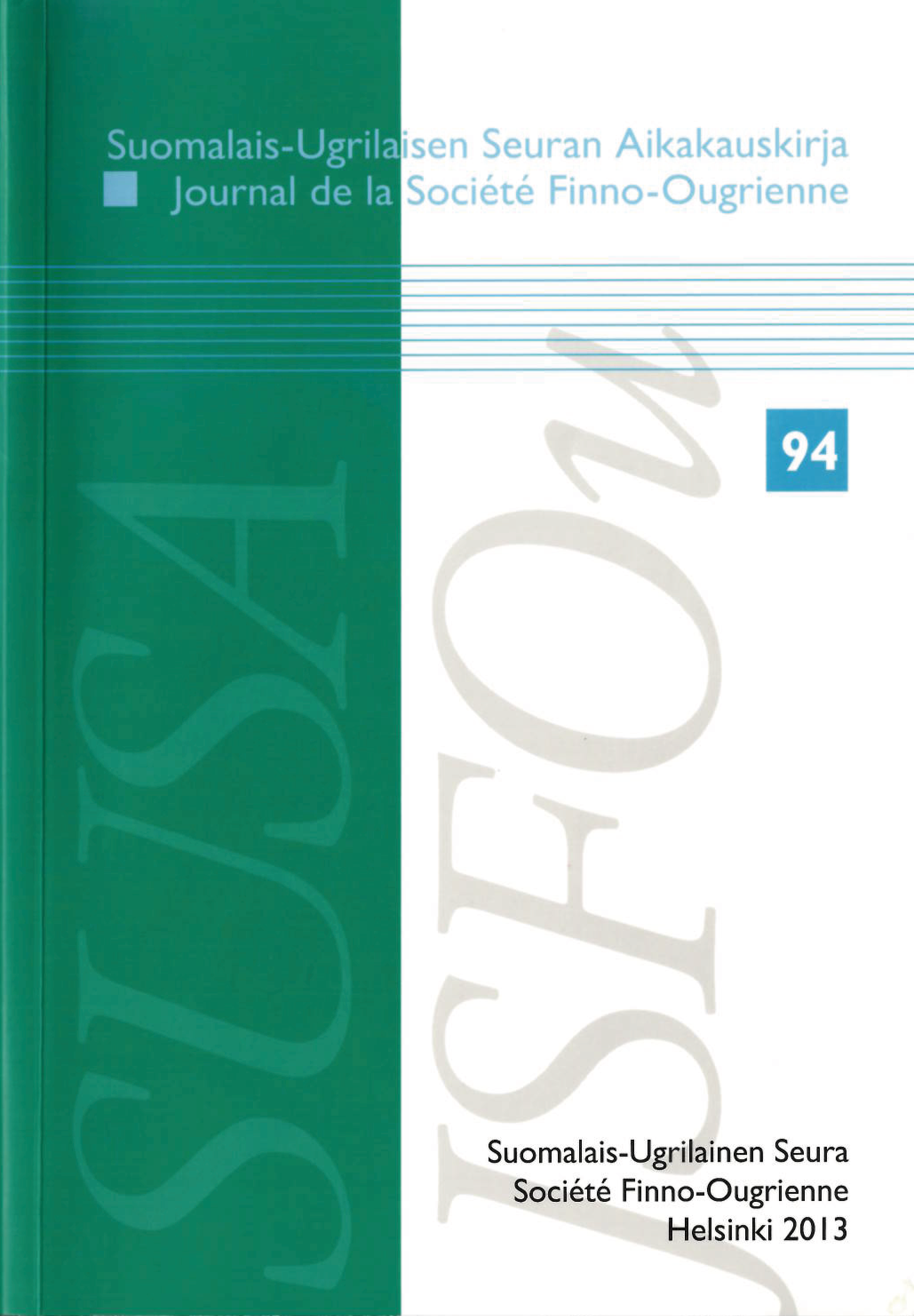Kalmyk causative constructions: case marking, syntactic relations and the speaker’s perspective
DOI:
https://doi.org/10.33340/susa.82521Abstract
This study is primarily concerned with the syntactic organisation of Kalmyk clauses headed by verbs that contain a morphological causative marker. The data reported here have been compiled during the summers between 2006 and 2008 in the Republic of Kalmykia. The fieldwork was organised by St. Petersburg State University and the Institute for Linguistic Studies, Russian Academy of Sciences.
This fieldwork has been conducted in several villages in the North-Western part of the Republic of Kalmykia. This region is supposed to be the area where the Dörböt dialect of the Kalmyk language is spoken; however, there is no clear indication that the data discussed below are different from the facts found in standard Kalmyk in any relevant respect.
The main objective of the study reported here is two-fold. First, there is a descriptive goal. Available descriptions of Kalmyk causatives are mostly concerned with morphological issues and case assignment in canonical causative constructions, whereas a deeper analysis of syntactic properties of causative constructions, especially of their non-canonical uses, is generally lacking. The present study is intended to partially fill this gap.
Second, there is a more theoretical goal. It will be shown that there are essential properties of Kalmyk causatives that can be hardly captured by the usual derivational approaches to causatives. Rather, causative verbs in Kalmyk will be viewed as a device for establishing a more or less direct correspondence between an event’s participants and syntactic slots. Although the scope of this paper is limited to one individual language, its findings can have broader typological relevance. In particular, I believe that taking the speaker’s perspective into account can deepen our understanding of causative constructions in other languages as well.





